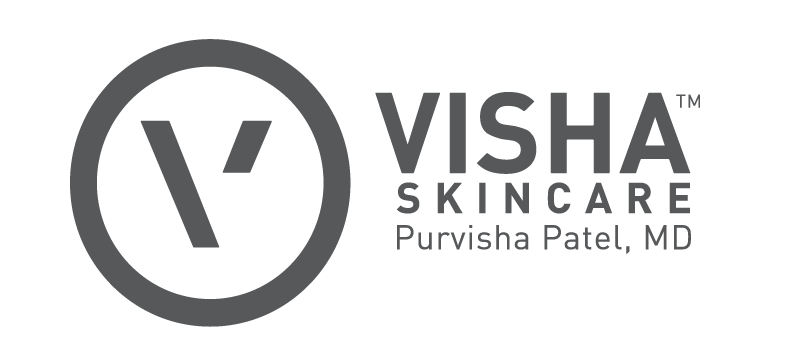
Beauty Insider posted "Dermatologists Share the Right Way to Use Hydroquinone for Best Results", which features Visha Skincare founder, Dr. Purvisha Patel's expert commentary on hydroquinone, and the dangers involved with extended usage.
Many women use lightening creams to fade freckles, acne marks, or other dark spots. More often than not, the key ingredient in hydroquinone. It’s one of the most potent treatments for hyperpigmentation, BUT it’s also controversial. In this guide to hydroquinone cream Singapore guide , you’ll find out how it works and how to use it safely.
What is hydroquinone, and how does it work?
"Hydroquinone is a topical skin treatment for melasma, freckles, age and sun spots, and even acne scars,” says cosmetic and plastic surgeon David Shafer. “Used in combination with other acne products such as Retin-A, hydroquinone can help dramatically improve skin complexion.”
Hydroquinone lightens the skin by supressing melanocytes, the skin cells that produce melanin.
Melanin is the pigment that gives our skin and hair its colour. Sometimes, our skin produces too much melanin, because of sun exposure, inflammation, hormonal changes, or ageing. Hydroquinone slows down melanin production, allowing existing spots to fade while preventing new ones from forming.
However, it can take several weeks for you to see the results. “Hydroquinone creams work at the cellular level to reduce the production of pigment,” Shafer explains, so you need to allow the skin to shed old cells and produce new ones.
Who can benefit from using hydroquinine cream?
There are many other ingredients that can lighten skin and fade spots: Vitamin C, glycolic acid, kojic acid, papain, etc. So when should you consider getting a hydroquinine?
“If you only have occasional or very light marks left by breakouts, you can just use a mild brightening wash and dark spot treatments, and a high SPF sunscreen,” says dermatologist Sharon Garcia. Use hydroquinone for more stubborn blemishes: marks that haven’t faded after several months, or recurring or persistent pigmentation.
“Hydroquinone is considered the topical gold standard in dermatology for reducing hyperpigmentation.”
Ee Ting Ng, cosmetic chemist
Dermatologists often use hydroquinone to treat melasma, a skin condition where dark patches appear on the forehead, cheeks and upper lip. While often genetic, melasma is triggered by sun exposure and hormonal changes like pregnancy, birth control pills, or hormone replacement therapy.
Hydroquinone is also effective for evening out the skin tone. It can treat discoloration or dark patches on your forehead or neck, so your skin looks brighter, fairer and blemish-free.
Is hydroquinone safe?
In 1982, the US FDA cleared hydroquinone as safe and effective for the treatment of hyperpigmentation.
However, several years later, some hydroquinone creams were pulled out of the market after their products were found to contain mercury. This caused public concern, and led to often exaggerated reports that said hydroquinone was toxic, dangerous or “the equivalent of a paint stripper of the skin.”
Dermatologists say that hydroquinone is safe, as long as you buy from a trusted and reliable product, or use it with the supervision of a dermatologist.
“Hydroquinone can irritate dry or sensitive skin, especially in high concentrations or if used with other skincare products that contain acids or physical exfoliants,” says dermatologist Harvey Ng.
Dr. Purvisha Patel also cautions against using hydroquinone for a long time. “There’s also a phenomenon called ochronosis, or increased pigmentation/darkening of the skin that is caused by hydroquinone in high concentrations and with long-term use,” she explains. “It is safe to use in 2% to 4% formulations twice a day for 12 weeks max. Then skin then needs a break from the chemical.”
Some experts also believe that hydroquinone works better on fairer skin tones. There is some research that the ingredient may worsen hyperpigmentation in darker skin tones. If you have medium to dark skin, talk to your dermatologist before using any hydroquinone cream.
Kinds of Hydroquinone Cream Singapore
Over the counter creams
These products typically combine hydroquinone with other skin-lightening ingredients. To avoid skin reactions, start with 2% concentration. Temporarily stop using exfoliators and facial brushes, or other products that contain acids like AHAs/BHAs or Vitamin C. Give your skin time to adjust to the ingredient. (You can start using these again when you know that you’re not sensitive to hydroquinone.)
Dermatologist Richard Bottiglione also recommends starting with a hydroquinone spot treatment. “Most people don’t need it all over the skin, just in particular areas. You should use it in the areas with hyperpigmentation.” If you tend to be sensitive, he suggests using it on alternating days.
When you know that your hydroquinone product works well with your skin, add a glycolic cleanser to your skincare routine. “Over the years I have never found a more effective treatment for unwanted pigmentation than glycolic acid and hydroquinone,” says Dr. Bottiglione.
Dermatologists also say that you need to use sunscreen with SPF 30 whenever you use any skin lightening cream. “I even recommend using your hydroquinone at night, to avoid any sun sensitivity,” says Dr. Patel.
Prescription hydroquinone creams
Stronger hydroquinone creams with higher than 2% concentration require a prescription. Beware of any over-the-counter product that contains higher dosages, or using a prescription cream without consulting a dermatologist. You risk irritating your skin, and this will actually cause inflammation that worsens hyperpigmentation.
Dermatologists can also check your skin condition to know the best treatment for you: the right concentration of ingredients, and how long you need to use it. They may also combine hydroquinone creams with other treatments, so you achieve faster results.
Find Safe Hydroquinone Cream Singapore treatments
Find the nearest dermatologist or skin clinic with Beauty Insider Guide. It lists Singapore clinics and their locations and contact numbers, and lets you filter results according to the treatment you’re looking for.
